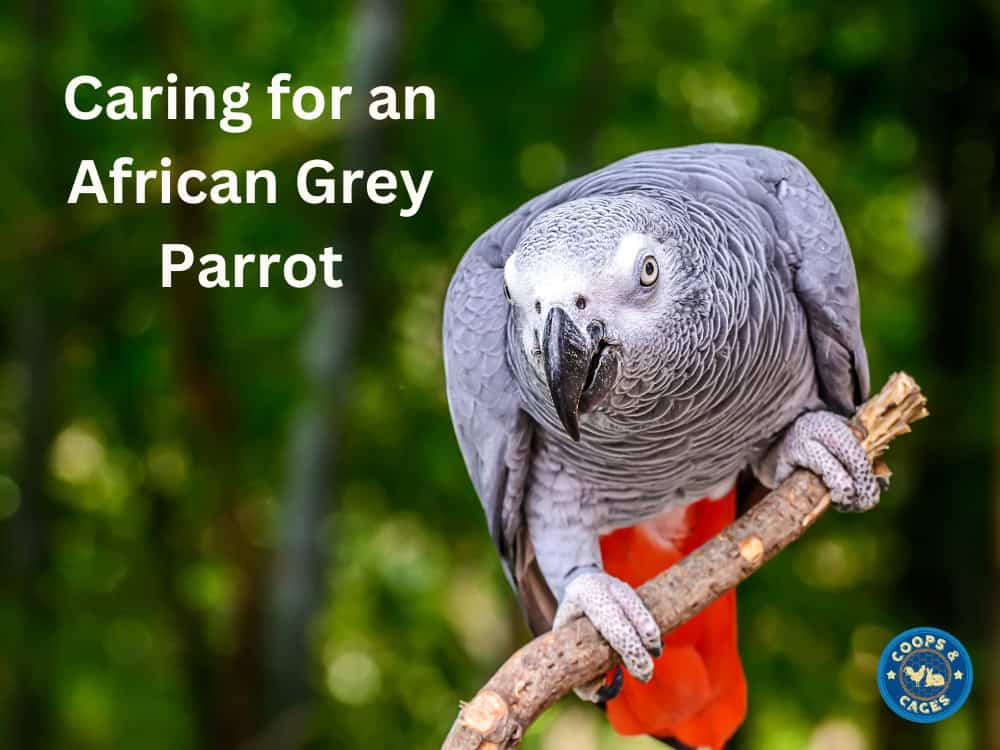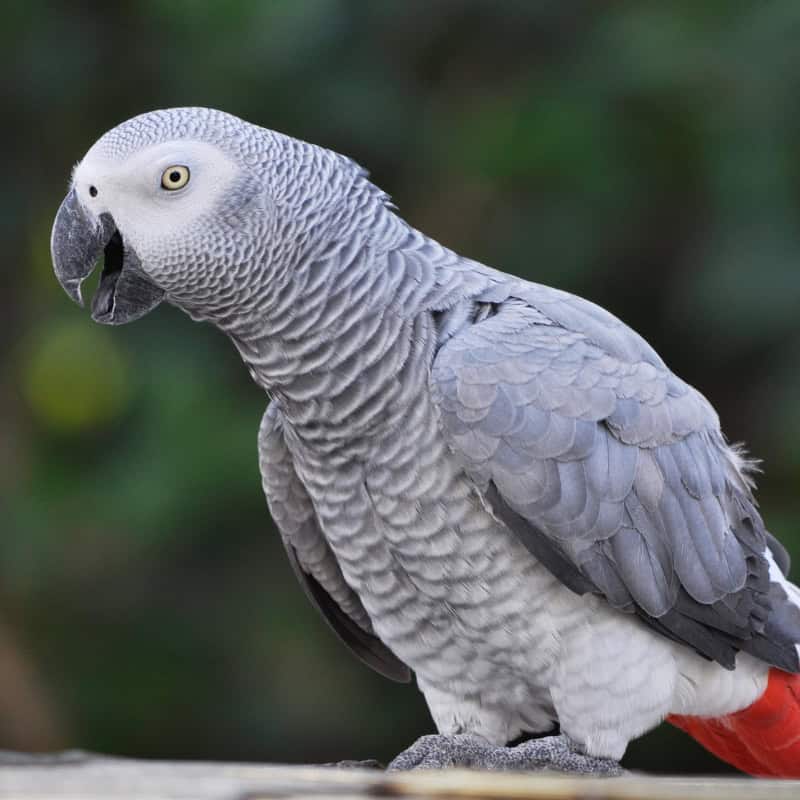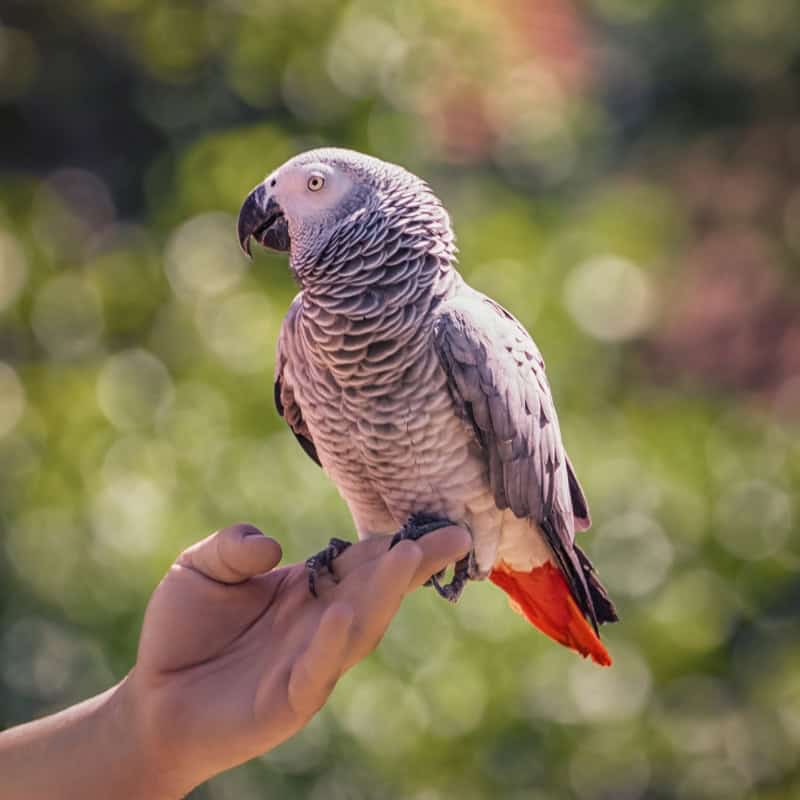Birds
Caring for an African Grey Parrot
Welcome to our guide on caring for an African Grey Parrot! Whether you’re a new bird owner or looking to enhance your knowledge, this blog is here to help you provide the best care for your feathered friend.
From choosing the right cage to understanding their social needs, we cover everything to ensure your African Grey thrives in your home.
Finding a Suitable Cage
Choosing the right cage for your African Grey Parrot is crucial for its health and happiness. As a highly intelligent and active bird, an African Grey requires ample space to move, play and exercise. The best rule of thumb is to get the largest cage you can accommodate in your home and afford.
A minimum recommended size for an African Grey Parrot cage is 1 metre cubed. This ensures your parrot has enough room to stretch its wings fully and climb around. Also ensure it has enough space to accommodate essential items such as food and water bowls, multiple perches, and various toys.
Stainless steel or powder-coated cages are preferable as they are durable and safe for your parrot. Additionally, the bar spacing should be 2.5cm to prevent the bird from escaping or getting stuck.
While we offer a range of bird cages at Coops and Cages, please note that our current selection is all too small for African Grey Parrots. We recommend seeking out specialised suppliers who can provide appropriately sized cages for your feathered friend.
Enrichment
African Grey Parrots are incredibly intelligent and require substantial enrichment to stay healthy and happy. Without adequate mental and physical stimulation, these birds can develop poor or destructive behaviours, such as feather plucking or excessive screaming. Enrichment is key to preventing these issues.
Providing a variety of toys is essential for fun and engagement. Rotate their toys regularly to keep their interest piqued. Toys that encourage foraging, puzzle-solving and manipulation are particularly beneficial.
Training your African Grey to do tricks is another excellent way to keep their mind occupied. Teaching simple commands, mimicking sounds and interactive play not only stimulates their intellect but also strengthens your bond with your bird. Training sessions should be short, positive and reward-based to ensure your parrot enjoys the activity.
Diet
Feeding your African Grey Parrot a balanced diet is crucial for its health. The foundation of their diet should be high-quality pellets specifically formulated for parrots. These pellets provide essential nutrients that seeds alone cannot offer. Supplement the pellets with fresh fruits and vegetables, such as apples, carrots and leafy greens.
In addition to their daily diet, offer healthy treats like nuts and seeds in moderation. These can be great for training and enrichment but should not make up the bulk of their diet.
Fresh water should always be available and changed daily to ensure cleanliness.
Wild African Greys eat a diverse diet of seeds, nuts, fruits, berries and leafy vegetation, often foraging in trees and on the ground.
Health and Wellness
African Grey Parrots can live up to 60 years with proper care and a healthy lifestyle.
They are prone to certain health problems, including feather plucking, respiratory issues, calcium deficiency, and psittacine beak and feather disease (PBFD). To avoid these issues, ensure your parrot has a balanced diet rich in calcium, which can be supplemented with cuttlebone or mineral blocks.
Maintaining a clean environment is crucial for preventing respiratory issues. Clean the cage regularly, provide fresh water daily and avoid exposing your parrot to smoke or strong fumes.
Feather plucking can often be a sign of stress or boredom, so providing plenty of mental and physical enrichment is key.
Regular vet check-ups are essential to catch and treat any health problems early.
Socialisation
African Grey Parrots are highly social birds that thrive on interaction and companionship. To keep them happy, it’s essential to spend quality time with them daily. Engage in activities like talking, playing, and training sessions to stimulate their minds and strengthen your bond.
Allow them out-of-cage time to explore and interact with their environment. Providing a variety of toys and puzzles can also keep them entertained when you’re not around.
Additionally, consider having other pets or birds to provide companionship, but always supervise their interactions to ensure they are safe and positive.






i have a german shepherd very hard to manage